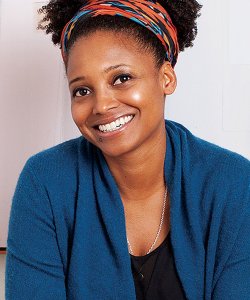LeVar Burton Reads, the Adaptability of Stephen King, and More
Neil Gaiman campaign raises $100,000 for refugees; the history of the Deseret, the phonetic alphabet invented by Mormons; a guide to raising kids as readers; and other news.
Jump to navigation Skip to content
Neil Gaiman campaign raises $100,000 for refugees; the history of the Deseret, the phonetic alphabet invented by Mormons; a guide to raising kids as readers; and other news.
Zadie Smith on the depiction of black pain in recent artwork; the difference between a book pitch and a press release; the Derek Walcott museum in St. Lucia closes; and other news.
Books Are Magic, an independent bookstore in the Cobble Hill neighborhood of Brooklyn, is owned by author Emma Straub and her husband Michael Fusco-Straub. The bookstore sells everything from best-sellers to a wide selection of kids’ books to titles by local authors, and hosts literary events including book launches, readings, and talks.

Dysfunctional families in literature; audiobook recommendations for long summer road trips; the ten most challenged books in schools and libraries in 2016; and other news.
“Palettes of mud, pillowcases of doorknobs, bags of ice…. Softest polyester stuffing spills out from black armor. It’s a leather jacket thrown over a bubble bath. This could describe a few people I know,” writes artist and author Leanne Shapton in a New York Times Magazine essay about the clothing designed by Rei Kawakubo. Taking inspiration from Kawakubo’s peculiarly surreal fashion designs, write a poem that starts with one of Shapton’s descriptive phrases, such as “a babble of valves and blisters,” “a reptile of lint,” “gobs of cheesecloth,” “potato-like clumps stuck to a neck,” or “exploded metallic popcorn kernel.” From there, let your imagination take over using these textures and shapes to portray an unexpected subject or feeling.
Tony Tulathimutte offers a guide to submitting your writing; Nick Flynn talks about poetry and addiction; famous typos in American publishing; and other news.
Milkweed Editions, in partnership with Riva Ariella Ritvo-Slifka the Alan B. Slifka Foundation, has announced its inaugural Max Ritvo Poetry Prize. An award of $10,000 and publication by Milkweed Editions in April 2018 will be given for a debut poetry collection. Award-winning poet Henri Cole will judge.
Poets currently residing in the United States are eligible to apply. Using the online submission system, submit a manuscript of at least 48 pages with a $25 entry fee between July 1 and August 31. Judge Henri Cole has selected four emerging poets as first readers for the prize: Ruth Awad, Graham Barnhart, Lauren Cook, Allison Pitinii Davis, and Jordan Zandi.
The prize honors the legacy of Max Ritvo, who Milkweed publisher Daniel Slager describes as “one of the most original and accomplished poets to emerge in recent years.” The press published Ritvo’s debut collection, Four Reincarnations, in 2016, a month after he died of cancer at the age of twenty-five. With an award amount of $10,000, the Max Ritvo Poetry Prize is now one of the richest first-book prizes in the United States. Visit the Milkweed website for more information and complete submission guidelines.
For more upcoming poetry and prose deadlines, visit pw.org/grants. Read more about Ritvo in “The World Beyond: A Last Interview With Max Ritvo,” written by poet Dorothea Lasky and published as on online exclusive for Poets & Writers.
Photo: Max Ritvo; Credit: Ashley Woo
Book industry sales fell in 2016; the canonical status of Virginia Woolf; Milkweed Editions launches poetry prize to honor late Max Ritvo; and other news.
British kids coin more than a hundred Trump-related words; the many adaptations and influences of Orwell’s 1984; Tommy Pico talks poetry and podcasting; and other news.

Librarian of Congress Carla Hayden has named Tracy K. Smith the next poet laureate of the United States.